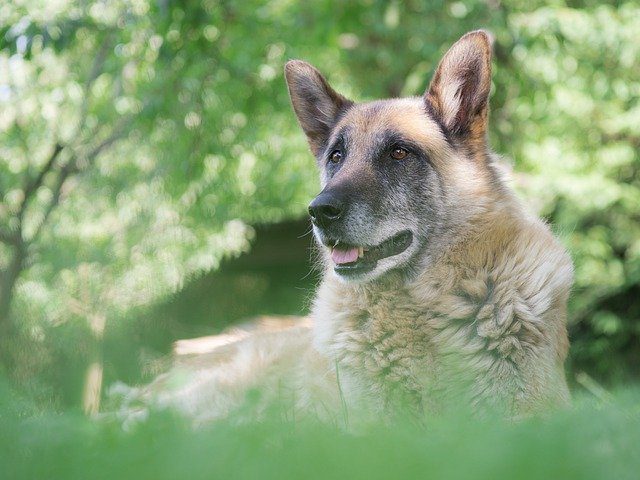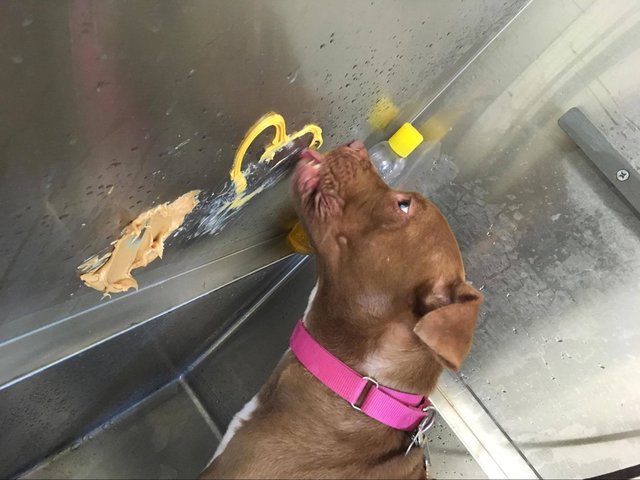Sudden Aggression In Dogs May Be A Symptom Of A Medical Condition
Dogs can sometimes display sudden, uncharacteristic episodes of aggression that cannot be explained by the owners. A recent study by researchers at Animal Nutrition and Welfare Service of the Universitat Autònoma de Barcelona set out to understand why some dogs – who have no history of aggression or biting – appear to attack without warning.

Their research uncovered that many of the dogs were likely to be in pain and suffering from an undiagnosed or untreated illness.
Although the study acknowledged there were complex genetics and environmental factors (such as a dog’s experiences while socializing, weaning period, exercise and diet) that contributed to canine aggression, they discovered that pain can also be a significant factor in causing a dog to behave violently.
Dog guardians voluntarily brought their dogs into evaluation at the university hospital during 2010 to 2011. The scientists analyzed the aggression problems among 12 dogs of various breeds, including a Giant schnauzer, Irish Setter, Pit Bull, Dalmatian, two German Shepherd Dogs, Neapolitan Mastiff, Shih-tzu, Bobtail, Catalan Sheepdog, Chow-chow, and Doberman Pinscher.
Tomás Camps, the lead author of the study noted: “All (eleven males and one female) were diagnosed as having aggression caused by pain. Out of the 12 studied, eight had suffered hip dysplasia.”
Canine hip dysplasia is a common ailment in dogs. It affects millions of dogs and is a hereditary and degenerative bone disorder that affects the hip joints. Labradors, Rottweilers and more than 40% of Golden Retrievers are diagnosed with hip dysplasia. In general, it can affect any large breed of dog (including mixed breeds) and it is also found in toy breeds such as pugs.


The study, which was published in the Journal of Veterinary Behavior – Clinical Applications and Research, further revealed that often when a dog bites without warning, it is because the dogs respond to pain differently than dogs with a history of aggression.
The researchers found the friendly dogs did not show obvious warning signals before an attack. Instead, friendly dogs reacted impulsively and caught their guardians unaware. This is because most guardians of friendly dogs assume their dog is happy and healthy. They trust their dog and therefore have more contact with them.
However, uninhibited contact (petting, playing or rough-housing) or making the dog do something it does not want to, could cause pain to the dog and trigger aggressive behavior.
“If the pet is handled when in pain, it will quickly act aggressively to avoid more discomfort without the owner being able to prevent it,” explained Camps.
Dogs with a history of aggression were found to attack their guardians with more intensity than friendly dogs. However, aggressive dogs tended to warn people in advance through growling or other unfriendly actions. The unfriendly dogs also had less physical contact with their guardians because of their aggressive demeanors.
Scientists also asked dog guardians to identify the most frequent circumstances in which dogs were aggressive. Almost always, the attacks caused by pain occurred when a dogs’ food was taken from them, when they were moved from where they were resting, or when they were being forced to do something.


Camps said, “Dogs that had never been aggressive before the onset of pain began to behave in this way in situations where an attempt is made to control them.”
As result of their study, one of the recommendations the researchers made was to encourage dog guardians to get their dogs regularly health checked.
The study also underscores the importance of ruling out medical conditions as a possible cause of aggressive behavior in a dog, before assuming the aggression has a behavior-based cause.
This research also points out that guardians should never take a friendly dog for granted around children, and always exercise caution, especially if the dog is not used to being with children.
What should dog guardians look out for?
A common early warning sign of pain is if your dog has a sudden unexplained behavioral change.
- Be on the lookout for aggression, vocalization, accidents and changes in activity level or social interaction. With hip dysplasia a dog may begin to “bunny hop” or have a limping gait.
- Sleep deprivation is commonly caused by pain and can make a dog irritable.
- Not all dogs respond to pain in a predictable way. Some may react when touched. Others will growl when their sleep is disrupted. While others will growl while chewing a bone. Consider filming episodes for your veterinarian to help with diagnosis.
- Schedule a yearly physical at the veterinarian to catch health issues early.
Reference: Pain-related aggression in dogs: 12 clinical cases. Journal of Veterinary Behavior: Clinical Applications and Research Volume 7, Issue 2, March-April 2012, Pages 99-102. Authors: Tomás Camps, Marta Amat, Valentina M. Mariotti, Susana Le Brech, Xavier Manteca






